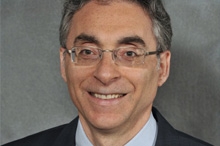

Flavio Leo is being honored as a Transportation Ladders of Opportunity Champion of Change.
As deputy director of aviation planning and strategy at the Massachusetts Port Authority (Massport), which owns and operates Boston Logan International Airport, my work balances two, often competing interests: the continuous improvement in safety and quality of travel for the flying public; and the mitigation of airport impacts on local neighbors who bear a burden of the indispensable role airports play in today’s global economy. Receiving the White House Champions of Change Award provides an opportunity for me to underscore the importance of successful community engagement if we, as an industry, are to continue to grow.
Logan Airport contributes substantially to the local and regional economy. Logan Airport is also an urban airport near downtown Boston with residential neighbors literally next door. Logan’s flight paths overfly a geographically and demographically diverse greater Boston region. It is no surprise, therefore, that addressing community concerns, sharing information and looking for opportunities to lessen impacts is an integral part of Logan’s DNA.
These were the challenging dynamics that attracted me to aviation work in the first place. Massport has a long history of community engagement. At times it has been contentious. One of the first projects I worked on involved airfield improvements at Logan. The process was long, technically challenging -- and controversial, with extensive community interest and engagement. The lesson I took away from this project was that neither airports nor the communities impacted by them are going away any time soon. Both will be forever linked.
As an aviation professional, I am determined to achieve the highest level of safety and customer service standards for the traveling public. I also recognize that citizens from impacted communities value the airport while, for the most part, they are trying to do what is right for their community as they engage responsible local and federal agencies on what are generally very technical issues for a lay person.
Avoiding conflict entirely is difficult. But that does not mean airports and local communities cannot find common ground in a community engagement process that is open, honest, fact-based and credible. That is my hope at any rate.
For example, when the FAA was rolling out the next generation flight procedures at Logan, it took a lot of time and involved significant resources to achieve community buy-in on an issue that was technically complicated. The new procedures have been implemented. Based on this positive dialogue we had with residents, I also believe the new procedures do address significant community goals. The process is still ongoing and provides a clear roadmap for further success.
For example, I work with local think-tanks, the FAA and our airline partners to offer Boston Logan as a laboratory for testing innovative concepts such as MIT’s approach to surface queue management, or the USDOT Volpe Center’s measuring of wake vortex formation and noise modeling algorithms, or JetBlue’s late night advanced procedure that try to avoid heavily populated areas. Based on the feedback we’ve received from the community, we have enhanced our website to help the public better understand the decisions airport operators make by explaining how our airport and airspace work.
When it comes to mitigating impacts, at Boston Logan we have already picked the “low hanging fruit.” We have soundproofed homes near the airport; adopted better abatement procedures; and aircraft manufacturers have designed cleaner and quieter aircraft engines. Future “silver bullet” solutions to airport impacts will be hard to find if they exist at all, and so we must look for the incremental opportunities available to us from a more informed dialogue with our communities.
Flavio Leo is the Deputy Director of Aviation Planning and Strategy at the Massachusetts Port Authority.


